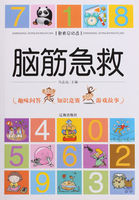With Tu's permission, Miss King's maid was sent to the inn to invite Jasmine to call on her mistress. The maid, who was the same who had acted as Miss King's messenger on the former occasion, glanced long and earnestly at Jasmine. Her features were familiar to her, but she could not associate them with any lady of her acquaintance. As she conducted her to Miss King's apartments, she watched her stealthily, and became more and more puzzled by her appearance. Miss King received her with civility, and after exchanging wishes that each might be granted ten thousand blessings, Jasmine said, smiling:
"Do you recognise Mr. Wen?"
Miss King looked at her, and seeing in her a likeness to her beloved, said:
"What relation are you to him, lady?"
"I am his very self!" said Jasmine.
Miss King opened her eyes wide at this startling announcement, and gazed earnestly at her.
"/Haiyah!/" cried her maid, clapping her hands, "I thought there was a wonderful likeness between the lady and Mr. Wen. But who would have thought that she was he?"
"But what made you disguise yourself in that fashion?" asked Miss King, in an abashed and somewhat vexed tone.
"My father was in difficulties," said Jasmine, "and as it was necessary that I should go to Peking to plead for him, I dressed as a man for the convenience of travel. You will remember that in the first instance I declined your flattering overtures, but when I found that you persisted in your proposal, not being able to explain the truth, I thought the best thing to do was to hand you my friend's betrothal present which I had with me, intending to return and explain matters.
And you will admit that in one thing I was truthful."
"What was that?" asked the maid.
"Why," answered Jasmine, "I said that if I did not marry your lady I would never marry any woman."
"Well, yes," said the maid, laughing, "you have kept your faith royally there."
"The friend I speak of," continued Jasmine, "has now taken his doctor's degree, and this stupid husband and wife have come from Mienchu to make you a proposal on his behalf."
Miss King was not one who could readily take in an entirely new and startling idea, and she sat with a half-dazed look, staring at Jasmine without uttering a word. If it had not been for the maid, the conversation would have ceased; but that young woman was determined to probe the matter to the bottom.
"You have not told us," she said, "the gentleman's name. And will you explain why you call him your friend? How could you be on terms of friendship with him?"
"From my childhood," said Jasmine, "I have always dressed as a boy. I went to a boy's school--"
"/Haiyah!/" interjected the maid.
"And afterward I joined my husband and this gentleman, Mr. Wei, in a reading-party."
"Didn't they discover your secret?"
"No."
"Never?"
"Never."
"That's odd," said the maid. "But will you tell us something about this Mr. Wei?"
Upon this, Jasmine launched out in a glowing eulogy upon her friend.
She expatiated with fervour on his youth, good looks, learning, and prospects, and with such effect did she speak that Miss King, who began to take in the situation, ended by accepting cordially Jasmine's proposal.
"And now, lady, you must stay and dine with me," said Miss King, when the bargain was struck, "while my cousin entertains your husband in the hall."
At this meal the beginning of a friendship was formed between the two ladies which lasted ever afterward, though it was somewhat unevenly balanced. Jasmine's stronger nature felt compassion mingled with liking for the pretty doll-like Miss King, while the young lady entertained the profoundest admiration for her guest.
There was nothing to delay the fulfilment of the engagement thus happily arranged, and at the next full moon Miss King had an opportunity of comparing her bridegroom with the picture which Jasmine had drawn of him.
Scholars are plentiful in China, but it was plainly impossible that men of such distinguished learning as Tu and Wei should be left among the unemployed, and almost immediately after their marriage they were appointed to important posts in the empire. Tu rose rapidly to the highest rank, and died, at a good old age, viceroy of the metropolitan province and senior guardian to the heir apparent. Wei was not so supremely fortunate, but then, as Tu used to say, "he had not a Jasmine to help him."















